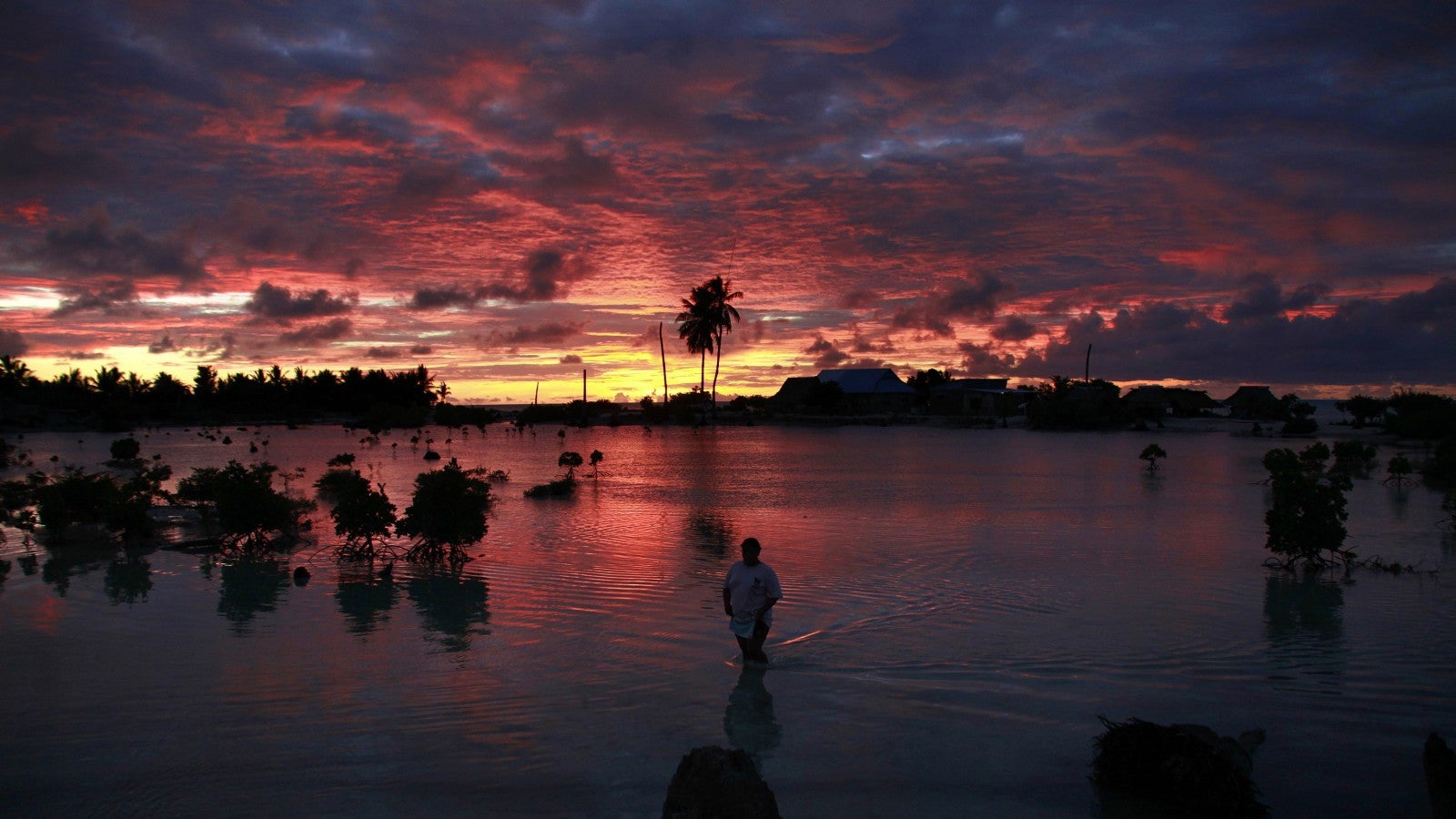New Zealand has refused a man’s claim to become the first official refugee from climate change
Ioane Teitiota claimed refuge due to climate change in 2009 and has been fighting to remain in New Zealand, where he has been residing with his wife and children. His bid was finally rejected yesterday (July 20) by the country’s Supreme Court.


Ioane Teitiota claimed refuge due to climate change in 2009 and has been fighting to remain in New Zealand, where he has been residing with his wife and children. His bid was finally rejected yesterday (July 20) by the country’s Supreme Court.
His claim was based on his home of Kiribati, a pacific archipelago of 33 islands and atolls—some of which rise only 2-3 meters (7-10 ft) above sea level—which he says is becoming unsafe as sea levels rise and crops and drinking water are affected by salt and sewage.
The court ruled that there wasn’t enough immediate threat to Teitiota’s life to cover him under international laws protecting refugees, the Australian Associated Press reported. The court ruling added that “there is no evidence that the government of Kiribati is failing to take steps to protect its citizens from the effects of environmental degradation to the extent that it can,” AAP said.
In fact, Kiribati’s administration is deeply worried. In 2014, it hosted a conference at which atoll nations called for immediate and urgent global action on climate change, saying that they found themselves on the “frontline,” effectively providing an “early warning system” for climate change. An extraordinary plan has even been drawn up by one Japanese company to convert Kiribati into a series of floating cities. Moving the population to Fiji is under serious consideration.
Intriguingly, the New Zealand court was careful to note that in rejecting Teitiota’s appeal, they were not ruling out the possibility of climate refugees being successful in the future.
Teitiota is not the first to claim to be a climate refugee. New Zealand and Australia have refused several such claims in the past—at least 17, according to Bloomberg. Teitiota was bidding to be the first to be successful.